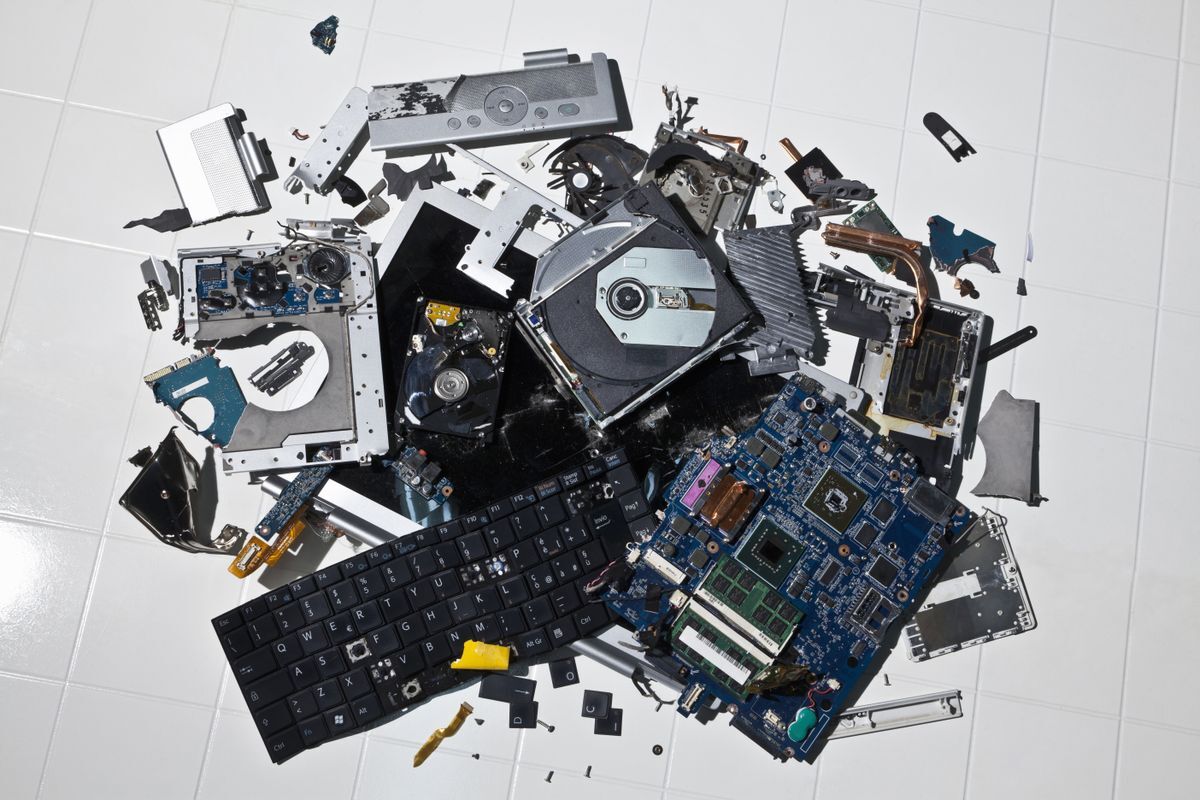Windows 10 end of life could prompt torrent of e-waste as 240 million devices set for scrapheap::As Windows 10 end of life approaches, analysts are concerned that millions of devices will be scrapped due to incompatibility
High-end corporate laptops from 5-10 years ago make excellent cheap and powerful Linux machines today (given a reconditioned battery, assuming you want to run them without mains, and a new SSD several times larger than the hard drive they came with). See all the sticker-festooned Thinkpads you see at conferences that spent the first few years of their lives handling executive email and PowerPoint presentations, now living their best lives.
I’ve always wanted to do this.
What’s a good source to buy them?
What models do you recommend?
I’ve always got them from eBay.
The T and X series are the high-end ones. Between those it mostly depends on what size of laptop you’re looking for. Its worth checking a guide for how you replace the SSD/RAM/battery - some of the newer ones have these soldered in place, which means you’re stuck with whatever it originally came with.
Personally, I think the sweet spot is around 4 years old. By that point they’re pretty cheap (maybe 10% of the original RRP), and going for older ones doesn’t save you much more money. I recently got an X390 and it’s doing everything I need from a laptop
of course no mention of upcycling these with linux and getting them into needy hands. with alll the solid state hardware now many of these machines are perfectly functional, and will be for some time. its the batteries that likely need a looking at
No, personal computers can only ever work with Windows. I just love that the common thinking process just accepted that problems, especially IT problems, can only ever be solved by 5 gigacorps.
BTW a lot of these will not even be laptops, I imagine they won’t even need much. If Windows was a proper system by the way, they could be still supplied with security updates by third parties.
Also, I’ve seen Rufus claiming to be able to remove the TPM requirement from the installer. I didn’t test it though.
Let’s go back to 1995, you’re a corporate IT manager or C-class executive , responsible for deploying desktops, laptops, to 10,000+ employees (I worked for or with several companies like this at the time).
You need directory services, email, app deployment. You also need common office apps, like word processing, spreadsheets, etc.
Your end users are finance folks, regulatory compliance teams (i.e. legal), marketing, etc, who’ve been working with systems that are purpose-built for their roles (mainframe/IBM As series for finance, print layout systems for marketing, etc), with not everyone really using email much.
Suddenly you have an opportunity to migrate everyone to a general purpose system that’s pretty easy to understand, and many people already have some familiarity with. You can eliminate sending handbooks to everyone by building your own intranet which people can access with IE. Your HR systems (which are still on mainframes/AS-400) can now be accessed by IE from anywhere in the company, so time entry, vacation, benefits changes, etc, reduce time and paper consumption dramatically.
Theres a million reasons why companies embraced Windows back then. Standardized UI for everything massively improved support capability. Being able to take output from legacy systems and present it better either via IE or custom-built apps made for significant training reduction, and could even reduce password management difficulties, and increase password compliance/security for the legacy systems (I saw one custom app in 1996 that presaged SSO by managing logins to 11 backend systems).
There was nothing in the *Nix world at the time that could compete with the whole package that Windows/Exchange offered, for the user management and end-user ease-of-use. Especially since you could retain your legacy systems and use Windows as both Windows and as a terminal if needed, and provide app flexibility for end users.
Then there’s the productivity side, there were already tons of Windows apps available, with many more on the way. And people were familiar with how to use them, because of a standard interface. Also, many people were using Windows at home or school, so we’re familiar with it.
Just compare Word to Wordperfect at the time. I’m not sure WP was even a GUI yet (I forget when they added it). So legal folks were fast as hell with WP, but your average user wasn’t, and it had a bit of a learning curve. Compare that to the menu-driven, WYSIWYG Word Perfect.
Now look at the SMB space, where money is even tighter. It’s much easier to deploy and manage an exchange/windows setup for 50 users than what, setup a Unix system? I could teach someone to do day-to-day Exchange admin stuff in a few hours, because GUI is way easier than command line for people who are new/inexperienced, because it reveals the concepts/paradigms. And Exchange ran on fairly generic hardware. Again, they didn’t have to buy something like an AS400.
Unix folks just didn’t see what was coming for some reason. I remember Unix admins disparaging Windows as a “toy” in the early/mid 90’s. Even today I couldn’t imagine selling a Linux setup to most companies, as mature is it’s gotten.
Where does the assumption that owners of these devices care about updates comes from? I regularly see people still using Windows 7, willing to use sketchy workarounds to continue using it. We all wish that this would mean The Year Of The Linux Desktop in 2025, but that would mean users would have to suddenly start caring about their OS.
Positive take: Lots of great Linux laptops on their way to eBay.
So what I’m hearing is, free Linux servers?
All these machines will continue to run, so if they’re not going to upgrade to win 11 and buy a new machine then what does it matter. They’ll just use a win 10 machine with no updates forever. Security concerns aside obviously.
Cool, I need some cheap Linux servers to build out my home lab
deleted by creator
Im still on a t430 🤷♀️
2013 Dell XPS i7-4470 up in this jawn.
Toshiba L745 i5 2430M here, still roaring
Where can i get this waste .my linux pengiun will love it🤩.but it saddens me that people relay on windows so much.
This is corporate talk, no ones work station is going to be running Linux anytime soon.
Oh yeah everyone, tell me where you work with Linux?
I am fully on Linux - daily usage, gaming and working.
Nobody’s Steam Deck is gonna run Windows any time soon.
Large ISP, in the global operations computing department. I am an exception to the rule though. I mostly touch network gear and *NIX servers so I’m not limited to Linux but I will say most of our *NIX stuff is RHEL now and doesn’t even boot past run level three so it’s all CLI.










